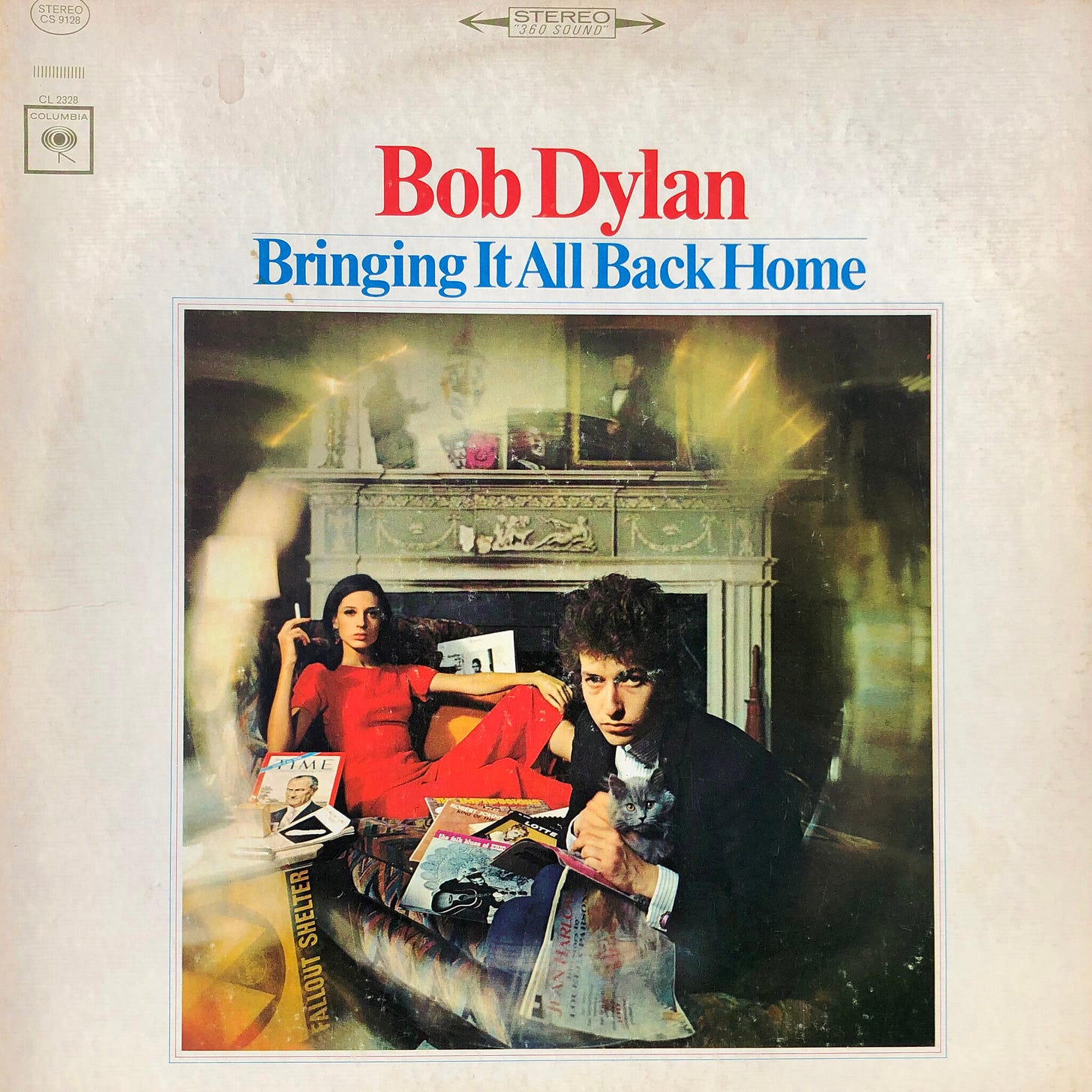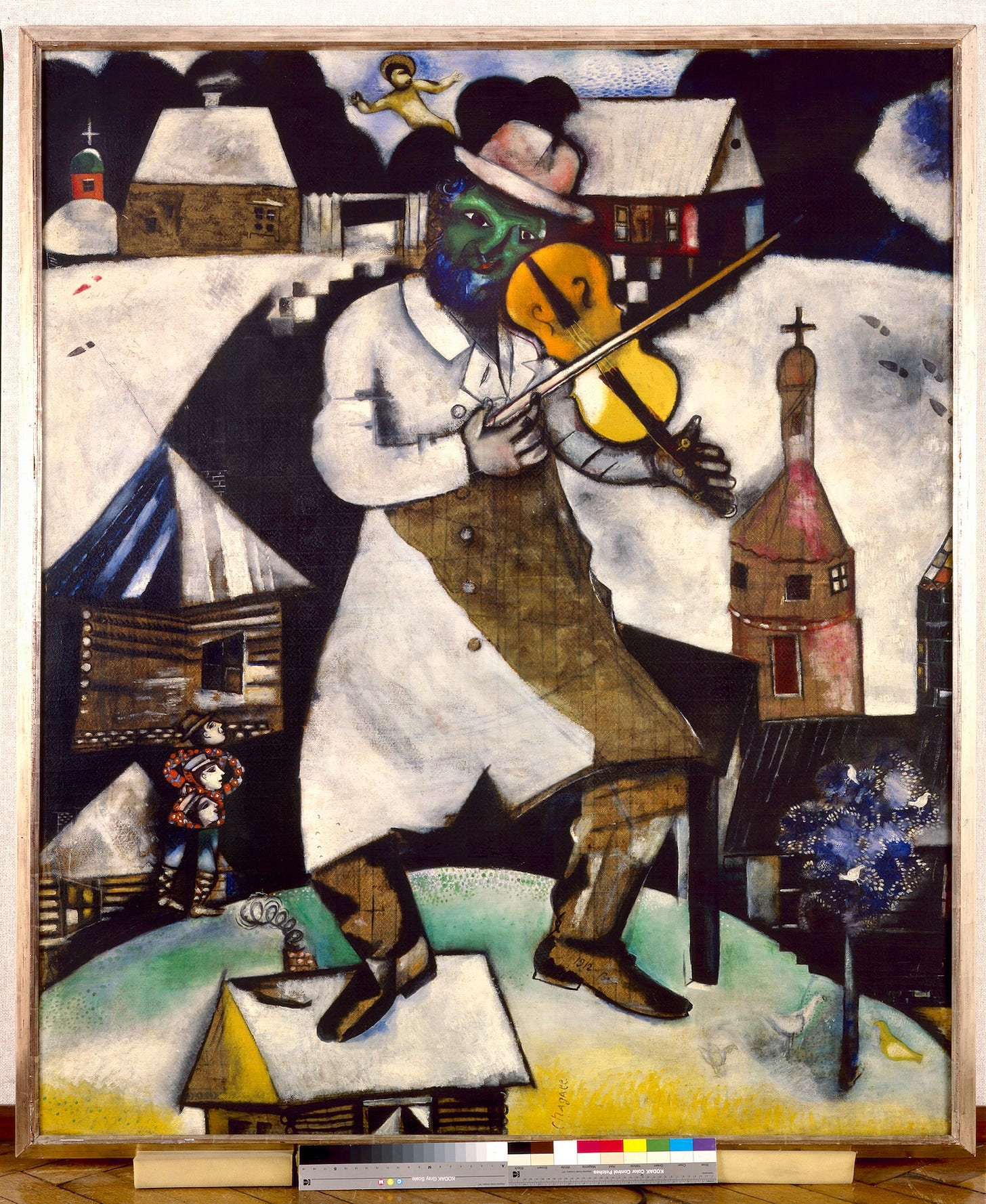Is Ben Shapiro a Self-Hating Jew?
Not really. He hates other Jewish people, not himself.
Bob Dylan changed his name to sound less Jewish. That doesn’t mean he hates himself.
Way back in 2017, Yair Netanyahu, the son of Israeli Prime Minister Benjamin Netanyahu, posted a viciously antisemitic cartoon. The image depicted billionaire Democratic donor George Soros as a master manipulator in control of the world, and also targeted other Netanyahu opponents. All were depicted as antisemitic caricatures, hooked noses and all. The cartoon was adapted from an image that circulates on alt right neo-Nazi extremist websites.
Why would a Jewish person circulate this kind of virulent antisemitic filth? One explanation that you’ll often see floated on social media is self-hatred. The argument here is that Yair Netanyahu hates himself and his own Jewishness. He uses antisemitic imagery and antisemitic talking points to distance himself from, or to deny, his own Jewishness. He’s a self-hating Jew.
The concept of the self-hating Jew was first popularized in 1930 by Theodor Lessing in his book Jewish Self-hatred. After almost 100 years, though, I’d really like to see the term retired for a number of reasons. First, it is often used to delegitimize good-faith criticism of Israel. Second, it’s just not a good description of the ways in which antisemitism can, sometimes, appeal to some Jewish people. And finally, it’s assumptions and usage promote antisemitic stereotypes.
Criticizing Israel Doesn’t Mean You Hate Yourself
People on the left sometimes say that right wing Jews like Yair Netanyahu or Ben Shapiro are “self-hating Jews” when they weaponize or defend antisemitism. But it’s a lot more common for people on the right to claim that any Jewish person who criticizes Israel policy is “self-hating.”
Right wing lawyer and asshole Alan Dershowitz, for example, attacked Vermont Senator Bernie Sanders for condemning Israeli violence against Palestinians. “You can be a Jew and an antisemite,” Dershowitz said. “Bernie Sanders, who’s Jewish, is a self-hating Jew.”
There are plenty of good reasons to hate Alan Dershowitz, but that doesn’t mean he hates himself. Image: Sage Ross CC.
This rhetoric is fairly common. Many Jewish people feel that Israel is central to their Jewish identity. If Israel is core to the experience of Jewishness, then rejecting Israel is also rejecting your Jewish self. For Dershowitz, and many other right wing Jews, opposing Israel policy is antisemitic. When Jewish people do it, it’s framed as a kind of self-betrayal.
This is nonsense of course. The Jewish people are not synonymous with the state policy of Israel, and while many Jews may feel that their identity is defined by Israel, many others don’t. I don’t speak Hebrew, have never been to Israel, have no particular desire to go to Israel, and think Israel’s Palestinian policies are cruel and genocidal. That doesn’t mean I hate myself; it just means that I identify with a Jewish tradition of diaspora and socialism rather than with a Jewish tradition of nationalism and Zionist repression. Alan Dershowitz doesn’t get to define Judaism for everyone on earth, and he doesn’t get to say that I hate myself just because I think his politics are repulsive.
There’s No One Jewishness to Hate
The thing about identity in general, and Jewish identity in particular, is that it’s not unitary. Judaism is a religion; it’s an ethnicity, it’s a bunch of heterogenous and sometimes contradictory cultural traditions, it’s a geneology, it’s a (contradictory, heterogenous) history, it’s an experience of oppression. Different people feel more or less connected to and implicated in different aspects of that identity in different ways. Keeping kosher, not keeping kosher; donating to Israel or demonstrating against Israel; calling yourself Robert Zimmerman or Bob Dylan—those are all quite common ways of being Jewish, not some betrayal of Jewishness.
Jewish diversity is a strength in many ways. One of the lessons of diaspora, I firmly believe, is that far-flung people—geographically and otherwise—can share an experience of solidarity and comradeship. We don’t all have to be exactly the same to be in community.
However, different approaches to identity also create many opportunities for division. Jewish people sometimes hate each other. And sometimes they express that hate through antisemitism.
In particular, Zionists like to reach for antisemitism to attack Jewish people in the diaspora. Zionists see Jewish identity as rooted in Israel and nationalism. They can be quick to demonize diaspora Jews as rootless, disconnected, inauthentic, or as manipulative internationalists—all standard antisemitic tropes (and all of which you can see in Yair Netanyahu’s attack on George Soros.)
Again, though, there’s no one true stable Jewish identity which resonates with all Jewish people. Netanyahu doesn’t feel like he shares an identity with George Soros. He’s basically saying there are bad Jews (in the diaspora, on the left) who conform to antisemitic stereotypes, and then there are good nationalist Zionist Jews like him who don’t. Right wing Jews often deny that left Jews are even Jewish—as when Ben Shapiro claimed that Bernie Sanders was “approximately as Jewish as a ham sandwich topped with shrimp on lard bread.” (Denying Sanders’ authenticity, and suggesting he’s pretending to be something he’s not, is also of course an antisemitic trope.)
I kind of hate Marc Chagall’s paintings, but that doesn’t mean I hate myself.
“Self-Hating Jew” Is Itself Antisemitic
When Dershowitz claims that critics of Israel are “self-hating,” he’s using an antisemitic trope. Jews in the diaspora are, again, often vilified as being disconnected from their true selves because they are not (physically or spiritually) one with Israel. Jewish people—according to Hitler and many other antisemites—have no authentic self, no volk. “Self-hatred” resonates with those smears. It suggests that Jews (or at least some Jews) aren’t comfortable with themselves and aren’t authentically part of an organic community. It’s another way of saying that Jewish people are disgusting and weak, in comparison to the virile volk (whether that volk is Aryan or Zionist.)
I think the “self-hating” claim also buttresses antisemitism in another way though. It suggests that there’s a single Jewish identity, and that Jews are part of that identity whether they will or no.
This is in fact what antisemites think; they believe all Jews are the same and that their Jewishness is the most important thing about them. But antisemites are full of shit, and Jewish people are free to embrace various aspects of Judaism or to disavow them all, if that’s what they want. They may not be able to effectively leave Judaism behind if they continue to be targeted or defined by antisemites, of course—but that’s antisemites being evil, not some sort of universal truth about the inescapability of Jewish identity.
Just Call It Antisemitism—Even If It’s Antisemitism Directed at Yourself
In general, I don’t think Jewish people who use antisemitic tropes hate themselves. They hate other Jewish people—and often specific other Jewish people. They believe that the antisemitic tropes apply to groups of Jews they dislike, or else they think using antisemitic tropes will give them a practical political advantage. Either way, they don’t think the tropes apply to them—and they’re right! Antisemitic tropes are evil lies. Jewish people are right not to believe that they are defined by antisemitic tropes, even when they’re wrong to apply those antisemitic tropes to other ways.
There are some instances where Jewish people can be influenced by antisemitism in self-destructive ways. A Jewish person might decide that they’re ugly because they look Jewish. They might feel that they’re inauthentic and lack real roots. They might even worry, per Christian propaganda, that they’re going to hell.
I guess you could call this self-hatred—but again, the hatred here is generally directed at a reified, singular Jewish identity which doesn’t exist except in the fevered and hateful imagination of antisemites. It seems more accurate, and kinder, to say that people have internalized antisemitism, or are directing antisemitism against themselves, rather than defining them by that debased, existential identity: “self-hating Jew.”
Also, By the Way, There Is No Justice
There’s a somewhat downbeat coda here. When you call someone a self-hating Jew, you’re suggesting that they are their own punishment. If Ben Shapiro is using antisemitic tropes to attack Bernie Sanders, then on some level Ben Shapiro hates himself; he’s a bad person doing bad things and he’s suffering for it.
But, for better or sometimes worse, nothing works like that. Jewish people who direct antisemitism at other Jewish people don’t necessarily feel bad about it and aren’t necessarily acting out of a well of self-loathing. Being Jewish doesn’t give you a conscience or a heart, nor does it make you see yourself in other Jews, or in other people. You’ve got to decide to do that yourself, no matter who that self is.





Only tangentially related, this makes me think of one of my favorite songwriters, Leon Rosselson, who's song, "My Father's Jewish World" is an amazing statement related to this essay: https://www.youtube.com/watch?v=ezlqqSxm0Rk
---------------------------------------------------------------------------
He lived in England half belonging half a stranger
Always feeling much as I do, on the outside looking in.
In time he grew to be an unbeliever,
Religion had become a mental chain
Abandoned God, became a Jewish atheist
and then, with pride a communist until the day he died
...
Now my father's Jewish world is lost forever
burned in the flames of hatred, nothing is left but ash and dust
and Yiddish lingers on our [inaudible] nostalgia
How can I make some meaning from what passed
The state they say is Jewish carved from stone and land
Brings only shame by torturing and killing in our name